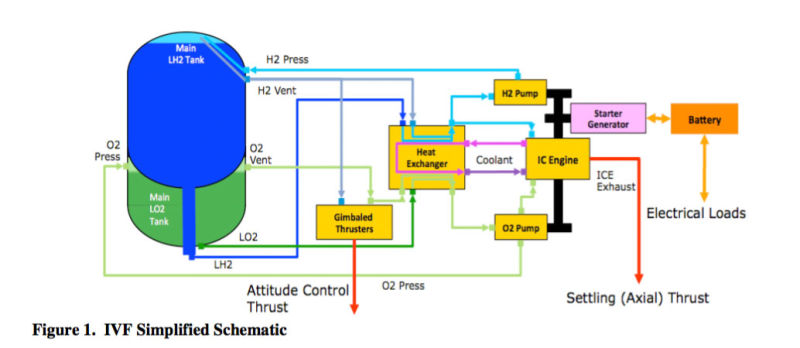Not a petrol engine, but still might be interesting to you:
https://jalopnik.com/a-nascar-team-is-building-the-first-internal-combustion-1783198912?utm_source=fark&utm_medium=website&utm_content=link
While there’s been a number of cars launched into space – a couple human-driven ones on the moon, a bunch of robotic ones on Mars, for example – no internal-combustion piston engine has ever left Earth. That makes sense since, you know, they don’t work outside the atmosphere. Until now. Currently in development is the first ICE designed to go into space, and it’s an old-school straight-6, built by people who make NASCAR engines.
Those people building the engine are the team at Roush Fenway Racing, and they’re building the engine as part of United Launch Alliance’s Integrated Vehicle Fluids (IVF) program. IVF is a very clever concept that would take a given rocket stage’s multiple fluids and systems and reduce them down so that just hydrogen and oxygen are needed.
What IVF hopes to do in ULA’s Vulcan rocket upper stage is to eliminate the complexity and mass of the current way of doing things by limiting fluids to liquid hydrogen and oxygen, and using an internal combustion engine—like the ones used in cars for over a century—to provide electrical power, heat for vaporizing fluids to act as pressurants, and settling thrust from exhaust, all for much less weight than batteries and multiple fluid storage tanks.
The “retro” design of the I6 is reminiscent of a classic Ford flathead V-8 design of the 1930s. These engines, while being incredibly tough, had a reputation for requiring oversized radiators since exhaust gas passages were close to block cooling passages and more heat than typical was transferred to the coolant. This heat rejection feature is much desired in the IVF engine since we wish to scavenge heat for tank pressurization. This allows us to eliminate the extraction of heat from the thrusters, a feature of earlier IVF designs, and keep all heat exchange functions within the engine. The engine head, which bridges the length of the engine, contains the heat exchange surfaces for rejecting heat to incoming hydrogen combustion gas, as well as vaporizing both liquid hydrogen and oxygen for tank pressurization.
